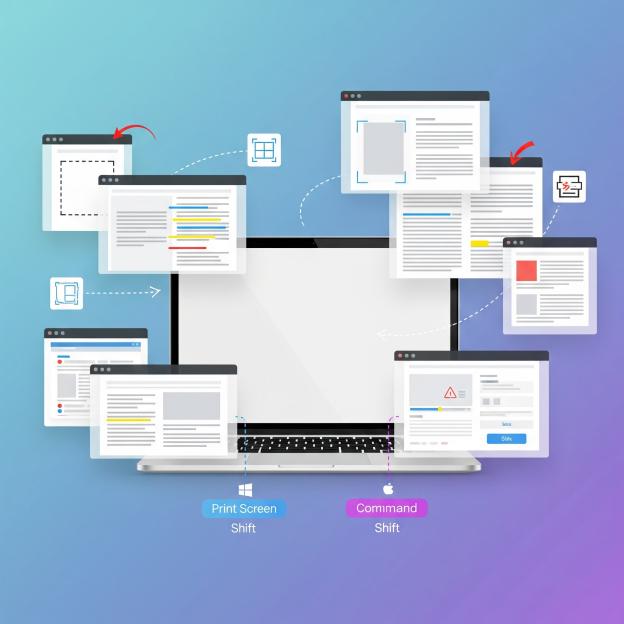Are you tired of wandering through endless bookstore aisles, overwhelmed by countless titles but unable to find that perfect next read? You’re not alone.
With over 4 million books published annually worldwide, finding books that match your taste can feel like searching for a needle in a haystack. Fortunately, the digital age has brought us sophisticated book recommendation sites that use everything from community reviews to artificial intelligence to help you discover your next literary obsession.
Whether you’re a romance lover seeking your next heart-fluttering tale, a mystery enthusiast craving edge-of-your-seat suspense, or someone looking to explore entirely new genres, these platforms have revolutionized how we find and fall in love with books.
What Are Book Recommendation Sites?
Book recommendation sites are digital platforms designed to help readers discover new books based on their preferences, reading history, and interests. These websites use various methods to suggest titles, including collaborative filtering (recommendations based on similar readers), content-based filtering (suggestions based on book characteristics), expert curation, and community-driven reviews.
The beauty of these platforms lies in their ability to personalize the reading experience. Instead of relying solely on bestseller lists or random browsing, readers can receive tailored suggestions that align with their specific tastes, reading goals, and time constraints.
Why Use Book Recommendation Sites?
Save Time and Reduce Decision Fatigue
With millions of books available, choosing what to read next can be overwhelming. Book recommendation sites eliminate the guesswork by providing curated suggestions based on your preferences.
Discover Hidden Gems
These platforms often surface lesser-known books that might not appear on mainstream bestseller lists but could become your new favorites.
Connect with Reading Communities
Many recommendation sites feature active communities where you can discuss books, share reviews, and get suggestions from fellow readers with similar tastes.
Track Your Reading Progress
Most platforms allow you to create reading lists, track your progress, and set annual reading goals.
Access Professional Reviews
Many sites feature professional book reviews and ratings from literary experts, helping you make informed decisions.
The 15 Best Book Recommendation Sites for 2025
1. Goodreads
Website: goodreads.com
Goodreads remains the king of book recommendation sites, boasting over 90 million members worldwide. This Amazon-owned platform combines social networking with book discovery, creating the world’s largest community of book lovers.
Key Features:
- Personalized book recommendations based on your reading history
- Extensive user reviews and ratings (over 4 billion ratings)
- Reading challenges and goal tracking
- Book clubs and discussion groups
- Author profiles and updates
- “Want to Read”; and “Currently Reading”; shelves
Best For: Readers who want comprehensive book data, extensive community interaction, and detailed tracking of their reading journey.
Pros: Massive database, active community, excellent mobile app, integration with e-readers Cons: Can feel overwhelming for new users, recommendation algorithm could be more sophisticated
2. StoryGraph
Website: thestorygraph.com
StoryGraph has emerged as a serious competitor to Goodreads, focusing on more nuanced book recommendations through detailed mood and content tracking.
Key Features:
- Mood-based recommendations (cozy, dark, adventurous, etc.)
- Content warnings and trigger alerts
- Reading pace tracking
- Detailed statistics and reading insights
- Diverse book discovery focus
- Custom reading goals beyond just number of books
Best For: Readers who want more granular control over their recommendations and prefer detailed mood-based filtering.
Pros: Superior recommendation algorithm, excellent diversity focus, detailed content warnings Cons: Smaller community than Goodreads, newer platform with fewer features
3. BookBub
Website: bookbub.com
BookBub specializes in discounted and free book deals while providing personalized recommendations based on your selected genres and favorite authors.
Key Features:
- Daily email alerts for discounted books
- Free book promotions
- Genre-specific recommendations
- Author follow feature
- Reading lists and wishlists
- Mobile app for on-the-go deal hunting
Best For: Budget-conscious readers who want to discover new books at discounted prices.
Pros: Excellent deals and promotions, genre-specific filtering, user-friendly interface Cons: Focus mainly on popular/commercial titles, limited community features
4. LibraryThing
Website: librarything.com
LibraryThing takes a more scholarly approach to book recommendations, using sophisticated algorithms and book metadata to suggest titles.
Key Features:
- Advanced recommendation engine
- Book cataloging and library management
- Early reviewer program
- Author connections and interviews
- Book discussions and forums
- ISBN-based book identification
Best For: Serious bibliophiles who want detailed book cataloging and sophisticated recommendations.
Pros: Excellent recommendation algorithm, detailed book metadata, scholarly community Cons: Interface feels dated, steeper learning curve for casual readers
5. What Should I Read Next?
Website: whatshouldireadnext.com
This straightforward site offers simple, effective book recommendations based on books you’ve already enjoyed.
Key Features:
- Simple search interface
- Recommendations based on single book titles
- Author suggestions
- Genre-based browsing
- Quick and easy book discovery
- Links to purchase or borrow books
Best For: Readers who want quick, no-fuss book recommendations without creating accounts or extensive profiles.
Pros: Simple interface, fast recommendations, no account required Cons: Limited features, basic recommendation algorithm, no community aspect
6. Whichbook
Website: whichbook.net
Whichbook uses an innovative slider-based system to help you find books based on mood, content, and writing style preferences.
Key Features:
- Mood-based sliders (happy/sad, gentle/violent, etc.)
- Content preference settings
- Random book discovery
- Genre filtering
- Visual interface for preference selection
- Quick book previews
Best For: Readers who know their mood preferences but aren’t sure about specific titles or authors.
Pros: Unique mood-based interface, quick discovery process, no registration required Cons: Limited book database, basic recommendation features, minimal community
7. TasteDive (now Tastedive)
Website: tastedive.com
While not exclusively for books, TasteDive provides recommendations across multiple media types, including books, movies, music, and TV shows.
Key Features:
- Cross-media recommendations
- Taste profile building
- Similar author suggestions
- Genre exploration tools
- Integration with various media platforms
- Community recommendations
Best For: Readers who want recommendations that connect their interests across different media types.
Pros: Cross-media integration, simple interface, diverse recommendation types Cons: Book database is smaller than dedicated book sites, less detailed book information
8. Basmo
Website: basmo.app
Basmo combines book recommendations with reading tracking and habit formation tools.
Key Features:
- AI-powered book recommendations
- Reading session tracking
- Note-taking and highlighting
- Reading habit formation tools
- Reading statistics and insights
- Mood tracking for reading sessions
Best For: Readers who want to combine book discovery with comprehensive reading habit tracking.
Pros: Comprehensive reading tracking, AI-powered suggestions, habit formation focus Cons: Premium features require subscription, newer platform with smaller community
9. Reedsy Discovery
Website: reedsy.com/discovery
Reedsy Discovery focuses on promoting new and upcoming books, offering early access to titles before they hit the mainstream market.
Key Features:
- Pre-publication book access
- New release notifications
- Genre-specific browsing
- Author connections
- Free advance reader copies (ARCs)
- Publisher partnerships
Best For: Readers who want to discover new books before they become popular and don’t mind reading advance copies.
Pros: Early access to new books, free ARCs, discovery of emerging authors Cons: Limited selection of established titles, focus mainly on new releases
10. BookRiot
Website: bookriot.com
BookRiot combines book recommendations with literary news, reviews, and cultural commentary.
Key Features:
- Curated book lists and recommendations
- Literary news and commentary
- Podcast recommendations
- Reading challenges
- Book-related articles and essays
- Community discussions
Best For: Readers who want book recommendations combined with literary culture and news.
Pros: High-quality content, diverse book coverage, excellent articles and essays Cons: Not a dedicated recommendation engine, requires browsing through content
11. Shepherd
Website: shepherd.com
Shepherd features book recommendations from authors themselves, creating curated lists of books that writers love and recommend.
Key Features:
- Author-curated book lists
- Author interviews and insights
- Genre-specific recommendations
- Book list themes and topics
- Author expertise in recommendations
- Discovery of author influences
Best For: Readers who want recommendations from their favorite authors and writers.
Pros: Author expertise, unique insider perspective, curated quality lists Cons: Limited scope compared to community-driven sites, smaller database
12. Fantastic Fiction
Website: fantasticfiction.com
Fantastic Fiction specializes in genre fiction, particularly fantasy, science fiction, mystery, and romance novels.
Key Features:
- Genre-specific recommendations
- Author bibliographies and series tracking
- New release notifications
- Reading order guides for series
- Author information and biographies
- Award-winning book lists
Best For: Genre fiction readers who need help tracking series and finding similar authors.
Pros: Excellent for genre fiction, comprehensive series information, author tracking Cons: Limited to genre fiction, basic recommendation features, dated interface
13. AllReaders
Website: allreaders.com
AllReaders provides professional book reviews and ratings across all genres, helping readers make informed choices.
Key Features:
- Professional book reviews
- Genre-based browsing
- Rating system
- New release coverage
- Author interviews
- Reading group guides
Best For: Readers who prefer professional reviews over community ratings when choosing books.
Pros: Professional review quality, comprehensive genre coverage, detailed book analysis Cons: Limited recommendation features, smaller community, focus on reviews over discovery
14. Bookish
Website: bookish.com
Bookish offers personalized book recommendations through detailed preference quizzes and algorithmic matching.
Key Features:
- Personality-based book matching
- Detailed preference quizzes
- Mood-based recommendations
- Reading goal setting
- Book club features
- Social sharing capabilities
Best For: Readers who want personality-based book matching and detailed preference analysis.
Pros: Sophisticated matching algorithm, personality-based approach, detailed preferences Cons: Requires time investment for setup, smaller book database
15. Literature-Map
Website: literature-map.com
Literature-Map creates visual maps showing relationships between authors, helping you discover writers similar to your favorites.
Key Features:
- Visual author relationship mapping
- Similar author discovery
- Interactive exploration interface
- Genre connections
- Author influence networks
- Simple search functionality
Best For: Readers who prefer visual discovery methods and want to explore author relationships.
Pros: Unique visual approach, interesting author connections, simple interface Cons: Limited to author suggestions, no detailed book information, basic features
How to Choose the Right Book Recommendation Site
Consider Your Reading Habits
Different sites cater to different reading styles. If you’re a voracious reader who devours multiple books per week, platforms like Goodreads with comprehensive tracking might suit you. If you’re a casual reader who wants quick suggestions, simpler sites like What Should I Read Next might be better.
Think About Your Genres
Some platforms excel in specific genres. Fantastic Fiction is excellent for science fiction and fantasy readers, while BookBub focuses more on popular commercial fiction. Consider where your reading preferences lie.
Evaluate Community Features
If you enjoy discussing books and connecting with other readers, prioritize platforms with strong community features like Goodreads or StoryGraph. If you prefer solitary reading experiences, algorithm-based sites might suit you better.
Consider Your Budget
While most recommendation sites are free, some offer premium features or focus on discounted books. BookBub excels at finding deals, while premium features on apps like Basmo might be worth the investment for serious readers.
Test Multiple Platforms
Don’t limit yourself to one site. Many successful readers use multiple platforms: Goodreads for community and tracking, BookBub for deals, and StoryGraph for sophisticated recommendations.
Tips for Getting Better Book Recommendations
1. Rate Books Honestly and Consistently
The more accurate data you provide, the better your recommendations will be. Rate books based on your genuine enjoyment, not what you think you should like.
2. Use Multiple Rating Criteria
When possible, provide detailed feedback about why you liked or disliked a book. This helps algorithms understand your preferences better.
3. Explore Different Genres
Don’t be afraid to venture outside your comfort zone. Many platforms reward diverse reading with more interesting recommendations.
4. Update Your Preferences Regularly
Your reading tastes may evolve over time. Periodically review and update your preference settings to ensure recommendations stay relevant.
5. Engage with Communities
Participate in discussions, read reviews, and follow readers with similar tastes. Community engagement often leads to the best recommendations.
6. Use Multiple Sources
Combine algorithmic recommendations with human curation. Use AI-powered suggestions alongside book club picks and friend recommendations.
The Future of Book Recommendations
Artificial Intelligence and Machine Learning
AI technology is becoming increasingly sophisticated in understanding reader preferences. Future platforms will likely offer even more personalized recommendations by analyzing reading patterns, completion rates, and even reading speed.
Voice Integration
As voice assistants become more prevalent, expect book recommendation sites to integrate with platforms like Alexa and Google Assistant for hands-free book discovery.
Augmented Reality Features
Future platforms might use AR to let you scan bookstore shelves and get instant recommendations based on the books around you.
Cross-Platform Integration
Expect better integration between reading apps, e-commerce platforms, and recommendation sites, creating seamless experiences from discovery to purchase to reading.
Enhanced Social Features
Social reading will likely become more sophisticated, with features like virtual book clubs, real-time reading parties, and collaborative reading experiences.
Common Mistakes to Avoid
Relying on a Single Platform
Different sites excel in different areas. Using multiple platforms provides a more well-rounded view of available books.
Ignoring User Reviews
While professional reviews are valuable, user reviews often provide insights about readability, pacing, and emotional impact that professional critics might miss.
Not Setting Proper Preferences
Take time to properly set up your profiles and preferences. The more information you provide, the better your recommendations will be.
Following Trends Blindly
Popular doesn’t always mean good for you. Trust your preferences over trending books if they don’t align with your interests.
Not Trying New Genres
While it’s comfortable to stick with familiar genres, some of your favorite books might be waiting in unexplored categories.
Building Your Personal Reading Strategy
Set Clear Goals
Decide what you want from your reading experience. Are you reading for entertainment, education, personal growth, or professional development? Your goals should influence your platform choices.
Create a Balanced Reading Diet
Mix different types of books: fiction and non-fiction, classics and contemporary works, challenging and light reads. Good recommendation sites can help you maintain this balance.
Track Your Progress
Use the tracking features available on these platforms to understand your reading patterns, preferences, and progress toward your goals.
Build Reading Lists
Create themed reading lists for different moods, seasons, or goals. Many platforms allow you to create custom shelves or lists for better organization.
Schedule Regular Discovery Time
Set aside time specifically for discovering new books. This might involve browsing recommendation sites, reading reviews, or exploring new genres.
Conclusion
Finding your next great read doesn’t have to be a matter of luck or endless browsing. The book recommendation sites covered in this guide offer various approaches to book discovery, from algorithm-driven suggestions to community-based recommendations to professional curation. Whether you prefer the comprehensive features of Goodreads, the sophisticated mood-based recommendations of StoryGraph, or the deal-focused approach of BookBub, there’s a platform that matches your reading style and preferences.
The key to successful book discovery lies in understanding your own reading habits, being open to new experiences, and using multiple tools and sources for recommendations. As these platforms continue to evolve with advancing technology, the future of book discovery looks brighter than ever.
Remember, the best book recommendation site is the one that consistently helps you find books you love. Don’t be afraid to experiment with different platforms, combine multiple sources, and trust your instincts about what sounds interesting. Your next favorite book is waiting to be discovered â these sites are just tools to help you find it faster.
Happy reading, and may your to-be-read pile never run empty!
Additional Resources
Featured Image Prompt (16:9 ratio): Create a vibrant, modern illustration showing a diverse group of people reading books in a cozy library setting, with floating digital book icons, recommendation symbols, and connectivity lines between books, representing the digital age of book discovery. Include warm lighting, bookshelves in the background, and subtle tech elements like tablets and smartphones. Style should be friendly and inviting with a color palette of warm blues, oranges, and cream tones.
Infographic Prompts:
1. “Top 15 Book Recommendation Sites Comparison Chart”; Create an infographic comparing the 15 book recommendation sites mentioned in the article. Include: site names, key features (as icons), best for (user type), community size indicators, free/paid status, and overall rating stars. Use a clean grid layout with consistent icons and a professional color scheme of navy blue, teal, and orange accents.
2. “How to Choose Your Perfect Book Recommendation Site”; Design a decision tree infographic helping readers choose the right platform based on their preferences. Include decision points like: “Do you want community features?”;, “Are you budget-conscious?”;, “Do you read specific genres?”;, leading to recommended platforms. Use arrows, yes/no branches, and colorful illustrations representing different reader types.
3. “Book Discovery Statistics and Trends 2025”; Create an infographic showcasing key statistics mentioned in the article: 4 million books published annually, 90 million Goodreads users, 4 billion ratings, growth of AI-powered recommendations, and future trends. Include charts, graphs, book icons, and trending arrows with a modern, data-focused design using blues, greens, and accent colors.







